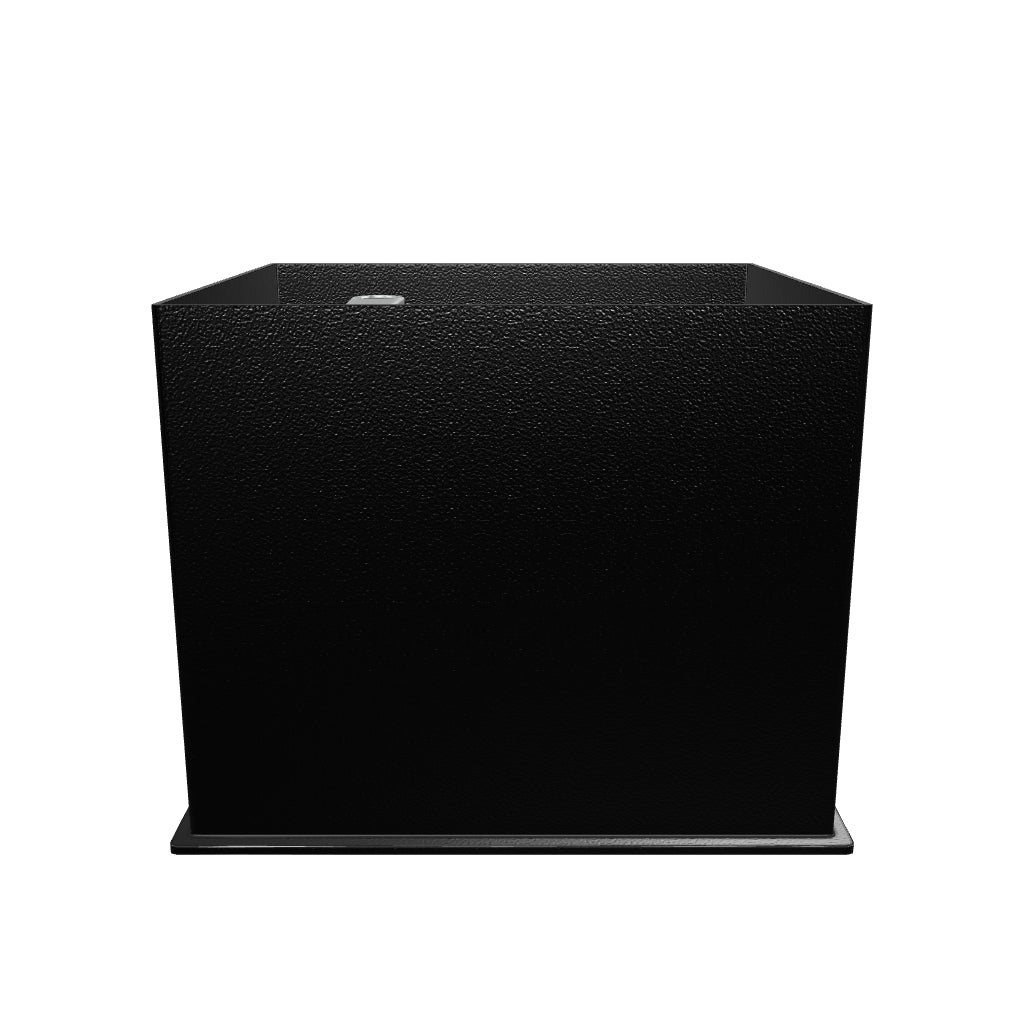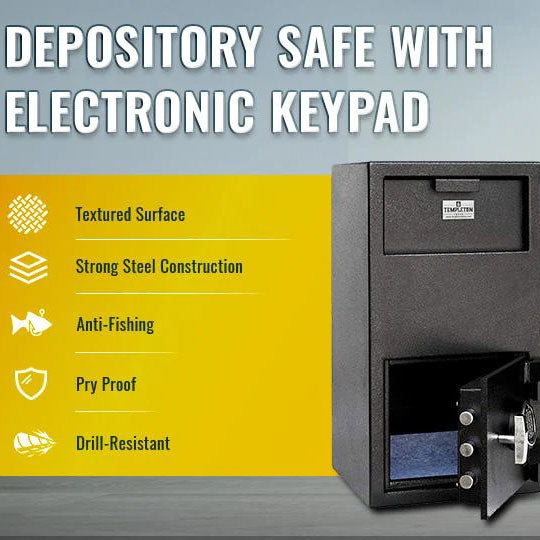Choosing the Right Safe Lock Mechanism for Your Security Needs
When it comes to securing your valuables, whether at home, in your office, or for your business, the lock mechanism on your safe is one of the most critical components to consider. After all, the strength of your security safe is only as good as the lock that keeps it secure. But with so many options available, how do you know which one is right for your needs?
In this article, we'll explore four popular types of security safe locks—electronic keypad locks, manual combination locks, keyed entry locks, and biometric fingerprint locks. Each has its own advantages, and the best choice for you depends on factors like convenience, security, and who will be accessing the safe.
Why Choosing the Right Lock Matters
Your safe’s lock is the first line of defense against theft or unauthorized access. If you're investing in a security safe from Templeton Safes, you’re already making a great decision for your valuables. But pairing that quality with the right lock can provide even greater peace of mind.
Some lock mechanisms are better suited for high-security applications, while others are more user-friendly for frequent access. Let’s dive into the details of each lock type.
Electronic Keypad Locks
How They Work
An electronic keypad lock is a modern, easy-to-use lock mechanism that allows you to set and input a numerical code to unlock the safe. With the press of a few buttons, you can gain access to your valuables without the need for keys or mechanical dials.
Key Benefits
-
Convenience: One of the major benefits of an electronic keypad lock is its convenience. You no longer have to fumble with keys or remember complex combinations. Simply type in your code, and the safe opens instantly.
-
Customizable Access: Many keypad locks allow for multiple codes, so you can give access to different people (like family members or trusted employees) without everyone using the same code. This feature is especially helpful for businesses.
-
Speed: If quick access is a priority—like when you need to reach important documents or personal items fast—an electronic keypad lock offers that speed.
Downsides to Consider
However, electronic keypad locks come with a few considerations:
-
Battery Dependency: Electronic keypads require power, which typically comes from batteries. If the batteries run out, you may be locked out until you replace them.
-
Potential for Hacking: Although rare, electronic systems may be more vulnerable to hacking than traditional manual locks. Templeton Safes mitigates this with robust encryption, but it’s something to keep in mind.
Manual Combination Locks
How They Work
The manual combination lock is the classic safe mechanism. It requires the user to dial a specific sequence of numbers, typically rotating a dial several times in different directions to line up the numbers and unlock the safe.
Key Benefits
-
No Need for Power: Since manual combination locks are purely mechanical, they do not require batteries or any power source. This makes them highly reliable, especially if you're worried about losing access due to power or battery failures.
-
High Security: Manual combination locks are incredibly secure and difficult to crack. The absence of electronic components means there's no risk of hacking or technical malfunctions.
-
Durability: These locks are built to last. They’re made of tough materials designed to withstand years of use, making them ideal for long-term security needs.
Downsides to Consider
While highly secure, manual combination locks can be a bit cumbersome:
-
Slower Access: Compared to an electronic keypad or biometric lock, accessing your safe with a manual combination lock takes more time and precision.
-
No Room for Error: If you misdial a number, you'll have to start over. This can be frustrating, especially when you're in a rush.
Keyed Entry Locks
How They Work
A keyed entry lock is exactly what it sounds like: a lock that requires a physical key to unlock. While this may seem like an older or more basic technology, keyed locks are still widely used and offer specific benefits.
Key Benefits
-
Simplicity: One of the most significant advantages of a keyed entry lock is its simplicity. There are no codes to remember, no batteries to replace, and no complex instructions to follow—just a key to insert and turn.
-
Cost-Effective: Keyed locks are often the most budget-friendly option for security safes. They provide solid security without the extra cost that may come with more advanced lock mechanisms.
-
Mechanical Reliability: Much like manual combination locks, keyed locks rely on a mechanical system that doesn’t need a power source, making them highly dependable.
Downsides to Consider
The drawbacks of keyed entry locks usually revolve around convenience:
-
Lost Keys: The most obvious issue is losing your key. If the key is misplaced or stolen, accessing your safe becomes a significant challenge, and you'll likely need to replace the lock entirely.
-
Limited Access: If you need to give access to multiple people, sharing a physical key may not be the most practical solution. You also run the risk of unauthorized duplication of keys.
Biometric Fingerprint Locks
How They Work
A biometric fingerprint lock is one of the most cutting-edge safe lock mechanisms available. Instead of using a code, dial, or key, these locks use your unique fingerprint to grant access. These locks are designed to store multiple fingerprints, so more than one authorized person can open the safe.
Key Benefits
-
Top-Level Security: Your fingerprint is unique to you, which makes biometric locks incredibly secure. They are virtually impossible to crack, making them ideal for high-security needs.
-
Fast and Easy Access: Just place your finger on the sensor, and the safe unlocks. This quick access is perfect for situations where you need to get to your valuables or documents quickly.
-
No Keys or Codes: You never have to worry about losing a key or forgetting a code with a biometric lock. As long as you have your finger, you're good to go.
Downsides to Consider
As advanced as they are, biometric locks do have some limitations:
-
Requires Power: Like electronic keypads, biometric locks need power, usually from batteries. If the power runs out, you may need a backup access method (like a secondary key or code).
-
Fingerprint Errors: While rare, biometric sensors can sometimes fail to recognize your fingerprint due to dirt, moisture, or even a small injury on your finger.
Which Safe Lock Mechanism Is Right for You?
Choosing the right lock mechanism ultimately comes down to your personal or business needs. Here’s a quick guide to help you decide:
-
For Convenience and Speed: Go with an electronic keypad lock or biometric lock. Both offer fast, hassle-free access.
-
For High-Security Needs: A manual combination lock or biometric fingerprint lock will provide top-level security with minimal risk of tampering.
-
For Simplicity and Budget-Friendly Options: A keyed entry lock is reliable and cost-effective, though it may not be as convenient as other options.
Final Thoughts on Security Safe Locks
Investing in a quality safe from Templeton Safes is already a great step toward protecting your valuables. But choosing the right lock mechanism ensures that your safe works for your specific needs. Whether you prioritize speed, simplicity, or the highest level of security, Templeton Safes offers a range of lock options to suit your preferences.
No matter what type of lock you choose, remember that proper use and maintenance are essential to ensuring that your safe remains secure for years to come. Keep your keys in a secure place, regularly update your keypad code, and make sure your biometric sensor stays clean for the best performance. With the right security safe lock, you can have peace of mind knowing your valuables are protected.






























